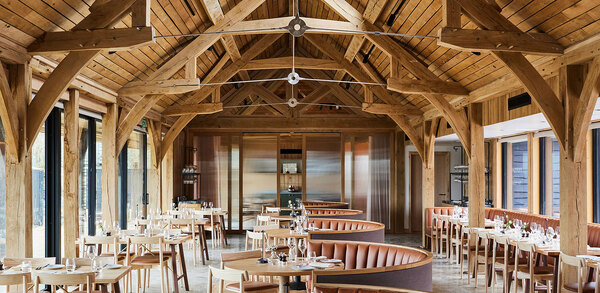Office caterers see rise in spend from flexible workers
Office caterers have seen a rise in spend per head from flexible workers despite staff spending more days working from home.
Foodservice firms have brushed off reports of large companies reducing their office space to accommodate the change as staffcontinue to spend the same amount on lunches but over fewer days.
A survey of 350 large multinational businesses, conducted by property firm Knight Frank, found half were planning to shrink their workspaces by 2026.
Most firms with over 50,000 employees said they were looking to reduce office space by between 10% and 20% by 2026.
Antony Prentice, managing director of BM, said: “It’s true to say that workplace patterns and traffic have changed significantly over the last few years. However, it is important to note that whilst people may be coming into the office less frequently, when they do, we have seen a significant increase in spend per head, condensing that spend into fewer days.
“Organisations are now using the catering facilities as a means of increasing engagement and productivity, alongside acting as a lever for retention and an incentive for recruitment,” he added.
Matt Symonds, managing director at Gather & Gather, part of CH&Co, described office catering as a “strategic trigger” that could drive people back to a physical workplace.
“We may not be seeing full occupancy five days a week, but when people are in the office, they are making more use of the facilities on offer and spend per head is higher than before Covid,” he said.
The survey also showed smaller companies, classed as those with up 10,000 employees, were expected to expand their offices over the next three years, which Danielle Mitchell, marketing director at Genuine Dining, said was “quite positive”.
She added that the growth of co-working spaces could provide further opportunities for contract caterers. Genuine Dining already partners with workspace provider the Office Group, which has around 40 sites across London.
“If people are going to be reducing their office space and moving into a shared office where they don’t necessarily want to have the overheads for themselves, that’s good for us as well, so [the reduction in large offices is] not something that we’re worried about,” she explained.
Mitchell added: “There’s going to be a need for people to come together to culturally align involving experiences at work that always comes down to: what’s for lunch?”.
Anthony Bennett, founder of Bennett Hay, said the corporate landscape will “take time to change” and office footprint was unlikely to “reduce overnight”.
He added: “People want to create experiences for those that are coming into the office. We’re attracting them to the office with food and drink … It’s going to be really interesting [for caterers] and there’s going to be some real creativity coming through.”



















